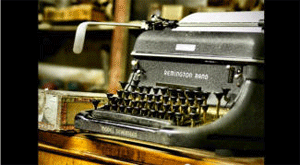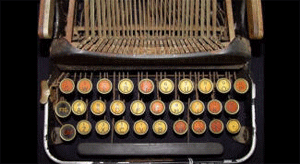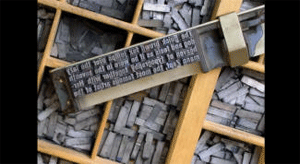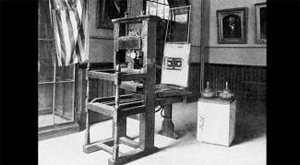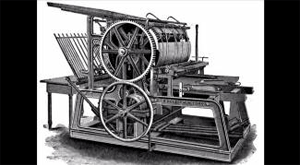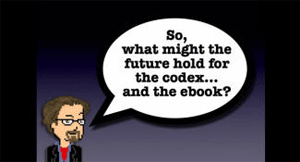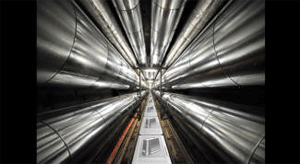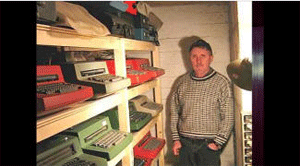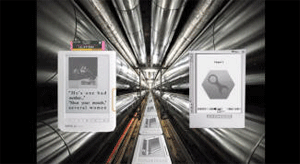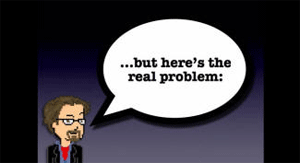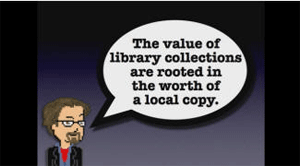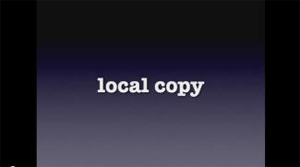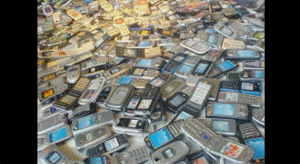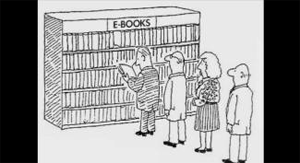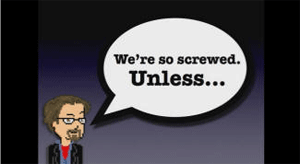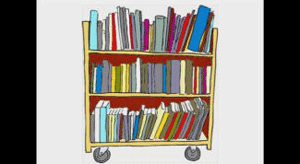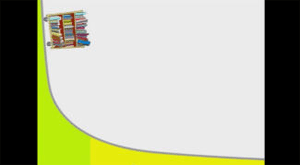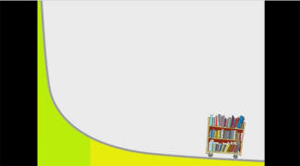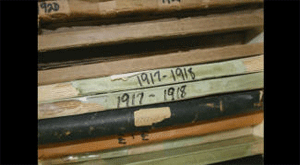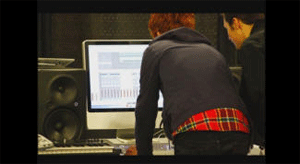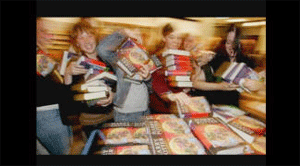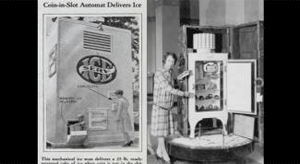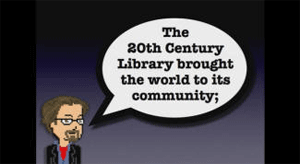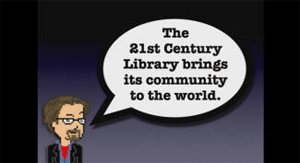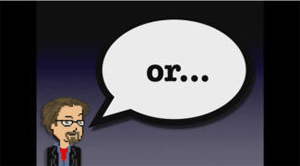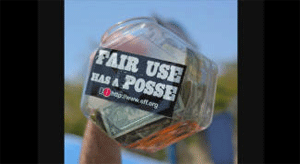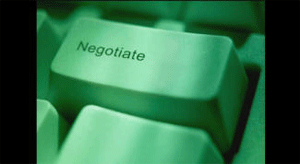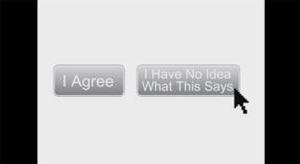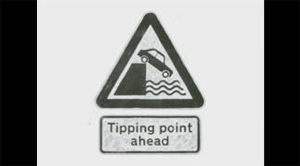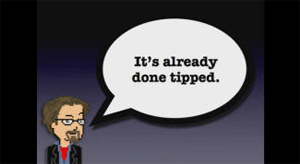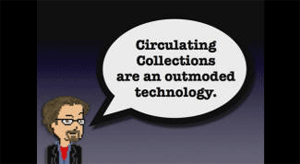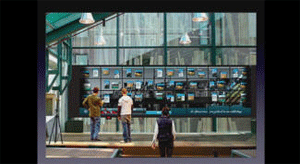by Eli Neiburger
September 29, 2010
NOTICE: THIS WORK MAY BE PROTECTED BY COPYRIGHT
YOU ARE REQUIRED TO READ THE COPYRIGHT NOTICE AT THIS LINK BEFORE YOU READ THE FOLLOWING WORK, THAT IS AVAILABLE SOLELY FOR PRIVATE STUDY, SCHOLARSHIP OR RESEARCH PURSUANT TO 17 U.S.C. SECTION 107 AND 108. IN THE EVENT THAT THE LIBRARY DETERMINES THAT UNLAWFUL COPYING OF THIS WORK HAS OCCURRED, THE LIBRARY HAS THE RIGHT TO BLOCK THE I.P. ADDRESS AT WHICH THE UNLAWFUL COPYING APPEARED TO HAVE OCCURRED. THANK YOU FOR RESPECTING THE RIGHTS OF COPYRIGHT OWNERS.
EBOOKS: LIBRARIES @ THE TIPPING POINT

A Library Journal / School Library Journal Online Summit
September 29, 2010
Libraries at the Tipping Point: How eBooks Impact Libraries
by Eli Neiburger, Associate Director for IT and Production, Ann Arbor District Library

[Eli Neiburger] How's everybody doing today? I'm Eli Neiburger. I'm the associate director for IT and Production at the Ann Arbor District Library, and I want to, kind of piggybacking on some of the stuff that Ray was talking about, push this out as far as this might go and see what the future might hold. Of course, none of us have a crystal ball but there's a lot of change that's going to be happening, and part of the challenge that's facing libraries right now is being willing to consider some pretty bleak scenarios for libraries, and think of ways out of them.
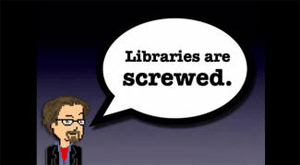
So, with that said, the following is my personal opinion: Libraries are screwed.

Libraries are screwed because we are invested in the Codex, and the Codex has become outmoded. Now technologies can become obsolete, they can become outmoded. Outmoded is different from being obsolete. The Codex isn't worthless. It's not crappy. It doesn't suck. It's not pointless. It doesn't offer no value.

But it is outmoded, meaning that it has been replaced by an increasingly convenient format that usually becomes less expensive. Now, interestingly enough, that's not really happening with ebooks yet because of who is in control. And we'll talk more about that as we go.
But, as this is happening, it's not just the format shift from the Codex to the ebook, it's also not just a change of text delivery format, but it's a move away from content that is ownable and shareable. And that's a problem when your organization is in the business of owning and sharing content.
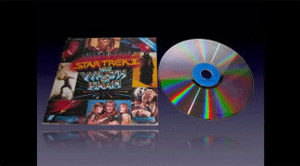
You know, the more heavily invested you are in a media format, the worse you get screwed when that media format becomes inevitably outmoded. And you can ask any library that circulated laser discs how they fared in the mid-80s when that technology kind of flamed out and of course there weren't very many libraries that circulated laser discs because back then we were pretty much focused on just the book. We hadn't really had the AV boom yet.

Going even further, the faster the format becomes outmoded, the faster you get screwed regardless of the quality of the content encoded into the format. Everyone agrees "Lost in Translation" is a pretty awesome movie, but here you can see on eBay, nobody wants a copy of "Lost in Translation" in a high definition format because it's the wrong high definition format, and it wouldn't even sell for $0.99 with one hour left to go on the auction.
So it's not just about the media format and our physical investment.

Despite our efforts to the contrary, the brand of libraries is "The Book Temple." Come to the Book Temple and get yourself some books. And of course, we changed that, and avid library users know that there's more to it, but if you do a market study, you find that the brand of libraries is books. And that can be a little problematic.

And here's our first bonus question: Does anybody know what library this is, and if you are my Kansas peeps, you don't get to answer. That's not fair.
So our values, and our operation parameters, and even our physical facilities, are all built around the Codex. But as the Codex becomes outmoded, again replaced by an increasingly convenient alternative, if libraries can't disassociate themselves from the Codex and its requirements, the "Memorial Library" can quickly become a "Library Memorial."
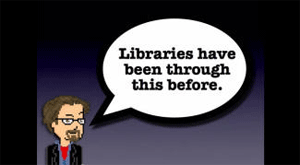
So, but this isn't the first time this has happened. Libraries have been through this before.

You know, the first libraries were cuneiform. Other than cave walls, of course. We started with the cave walls, and then we had things that were slightly more mobile, the cuneiform.

And then can you imagine the handwringing and dire predictions that came to our industry when mobile technology came onto the scene and shook up our collections? I mean, we need a whole new strategic plan. You know, we need a a completely different tool. We need a very different way of circulating because, "Oh, man, the shelving is all wrong." And everything was different. And yet, we survived. We're still here.
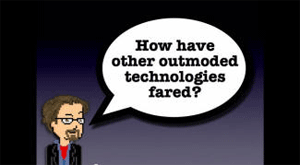
So, maybe we can learn something by looking at how other outmoded technologies have fared as their markets have changed over time.
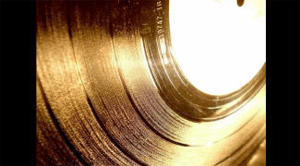
Let's talk first about vinyl. Vinyl is not an obsolete format. There are things that vinyl can do that no digital format can even come close to matching. But it is a completely outmoded format, and it became outmoded primarily because of its convenience.
Now, at the same time, the industry that produced vinyl crumpled from a peak of moving over 500,000,000 units a year to now just over 2,000,000 units a year.
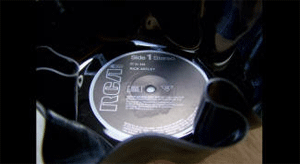
And there is so much unwanted inventory out there, that a lot of this vinyl gets downcycled -- or I guess you could call it upcycled, depending on how you look at it -- into other uses, while destroying their original purpose. And this is the rickroll bowl.
The other part of it is that those who survived the crash of that market are thriving. Vinyl is enjoying triple digit growth over the past years, but the industry is a slim shadow of its former self. And there is nobody involved who wears a suit to work anymore.
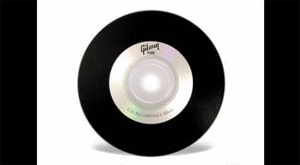
Meanwhile, the format just oozes cool, and all the weak, soft, digital formats wish they could be as cool as vinyl. They wish they could have just a shred of vinyl's coolness.
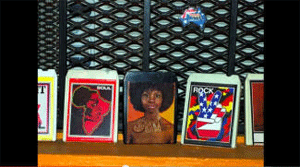
On the flip side, nobody wants to be as cool as the 8-Track. [Laughs] It was a transitory technology. It was only popular as long as it had a convenience edge. And that convenience edge was driven primarily by the idea that people might want to take recorded music with them, carry it around with them. What a crazy idea! You know, who wants to carry all their music around with them? That's just insane!
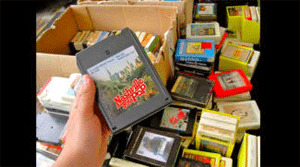
However, the technology was quickly replaced by a higher capacity, less fussy format -- the cassette -- and 8-Tracks rapidly became a big joke, garage-sale staple, and even a symbol for the weirdness of one nutty decade. And some of you might know where I'm going with that.

So, let's look instead at candles. As a technology, it's completely obsolete. It's unreliable, it's messy, it's inefficient, and yet there isn't a 21st century kid in the world who doesn't know what they are. They have not disappeared. They are still a big part of our humanity.

And for a lot of reasons like that they occupy a very different place in our society than they did at their sales peak. Now, candles are all about experience, ceremony, atmosphere, romance, or for when our modern infrastructures fail and leave us in the dark ...

or, you know, if you have accidentally forget the sensor bar on your Wee, or something like that.

The most interesting thing about what has happened to the candle market since it peaked was that the candles that are now produced and sold are optimized along completely different axis than they used to be, such as how they smell, or how they are decorated, or any of those kinds of things. And also, 90% of all candle purchases are made by women. But it's still a $2 billion industry in the U.S. Now, that's not too big of an industry. What else is a $2 billion industry?

Well, whale watching is $2 billion industry.

And oh, yeah, Yu-Gi-Oh is a $2 billion industry.
So you know this is a shadow of its former self, and it's important to keep that in perspective.
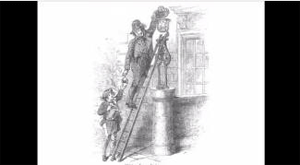
So, along the lines of light, let's consider gas lamps. This is a dangerous, labor-intensive technology, but it was once a fixture in most cities. It was eventually outmoded by electric lights of course, and it's now almost completely gone ...

except for designated theme nostalgia districts that deploy, you know, like an organized kitsch installation as an attraction, San Diego's Gas Lamp Quarter, of course, the most famous one, but most people know there really aren't that many gas lamps left in the Gas Lamp Quarter.


